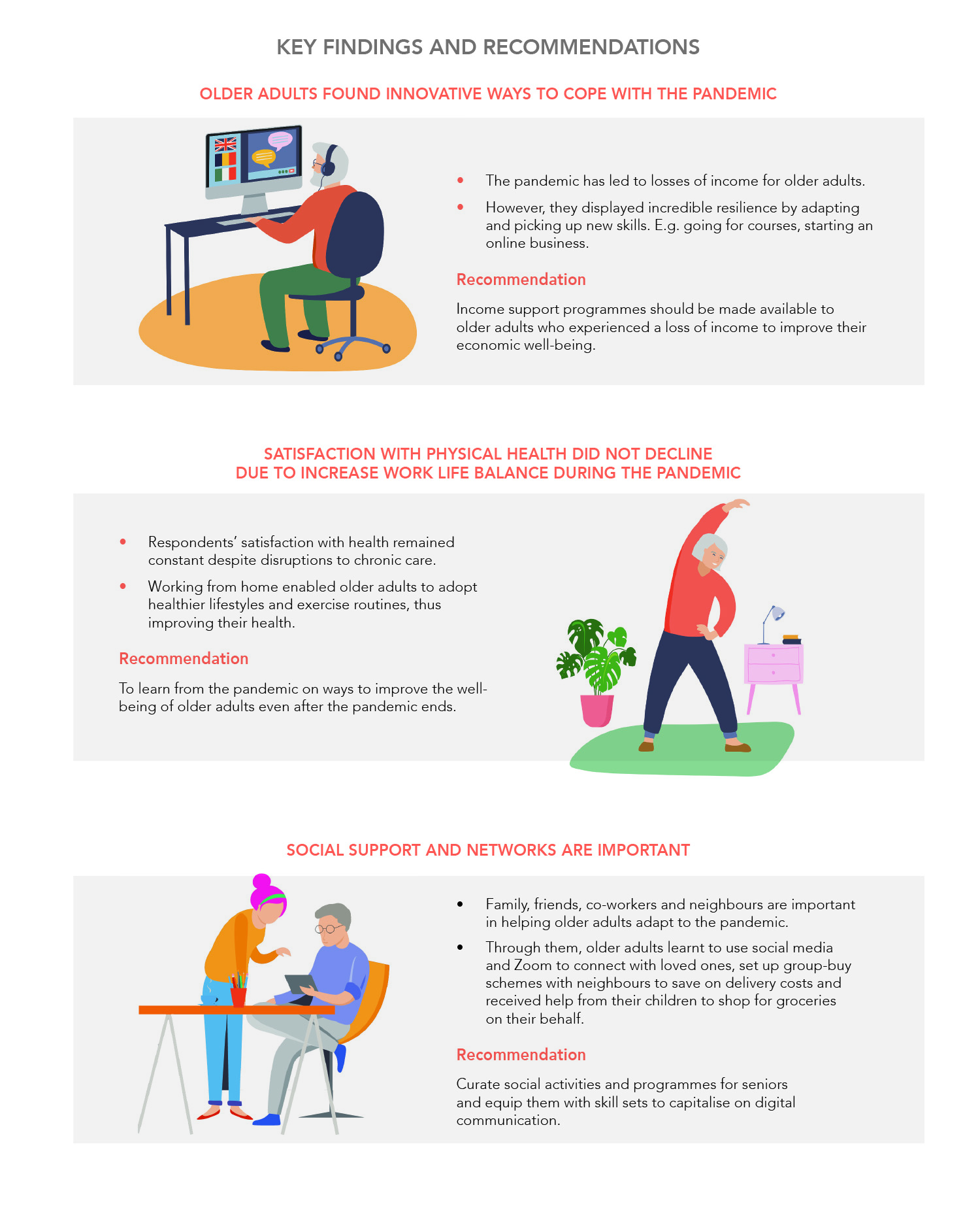Helping Singapore’s Older Adults Cope with Covid-19’s Endemic Phase
Helping Singapore’s Older Adults Cope with Covid-19’s Endemic Phase
By SMU City Perspectives team
Published
From income losses and social distancing to interruptions in healthcare provision, the Covid-19 pandemic continues to disrupt the lives of many around the world. Yet Singapore’s older adults have illustrated just how resilient they were in adapting to the pandemic, according to a report by SMU’s Centre for Research on Successful Ageing (ROSA) titled “Growth and Resilience During COVID-19: The Impact of the Pandemic on Older Adults in Singapore”. The report also underscores the key recommendations from its research to help support Singapore’s older adults as the country transitions into a new endemic phase.
The report is a compilation of the centre’s research on the well-being of older adults in the past year, together with new findings from a series of focus groups on how older adults had coped during the pandemic. The focus groups were conducted with 35 Singapore Life Panel® (SLP) participants aged between 52 and 74 in 2021, and the findings served to contextualise trends that had been observed in previous surveys run by the centre.
“As we move into the endemic phase of COVID-19, it is important for us to do a stocktake of what we have learnt from the pandemic so far in order to help older adults transition into this new phase,” said Professor Paulin Straughan, Director of ROSA. She added that it is important to recognise the many ways that older adults have demonstrated resilience in the face of the pandemic.
“Only in doing so can we adopt the right strategies to proactively enable older adults to not just adapt but flourish as we move forward," she said.

The effects of the Covid-19 pandemic on older adults are far-reaching, and the research conducted by ROSA is one way to support policymakers in handling the unanticipated developments that came about as a result. As Singapore transitions into the new endemic phase, ROSA’s research aims to gain a better understanding of the ‘ageing Singaporean’, and to spotlight ideas to support and improve their well-being. To this end, ROSA has made several developments including the recruitment of a younger sample, aged 50 to 55, for the SLP, and the expansion of the centre’s scope of study to include new topics. It also plans to expand its scope of research on the “ageing Singaporean” beyond pandemic-related issues as Singapore adapts to living with the endemic as the “new normal.”

